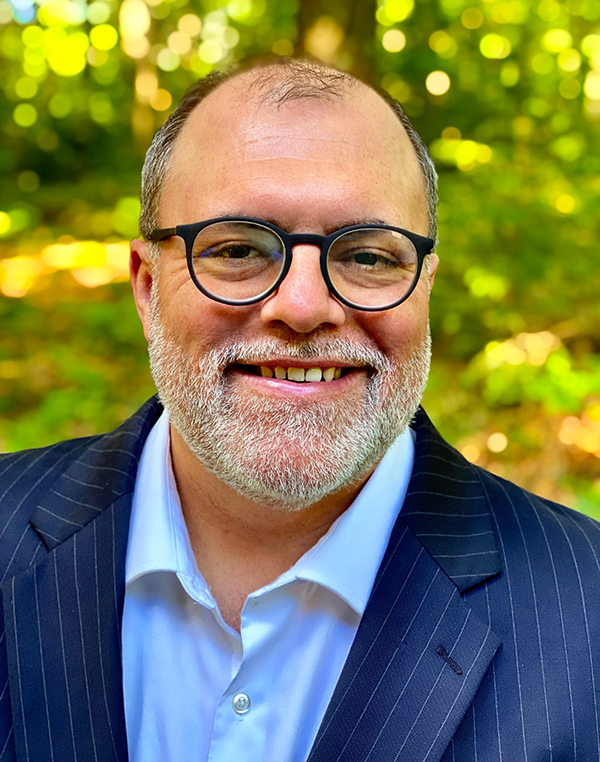Meet Daniel Olds, New Vice President for Alumni Relations
By Bowdoin NewsDaniel Olds, Bowdoin’s new vice president for alumni relations, began his new position in mid-August, bringing with him nearly a quarter century of experience in the higher ed space. In his new role at the College, Olds oversees all aspects of alumni relations and serves as chief liaison for the Alumni Council.

What drew you to this new vice president for alumni relations position?
Maine has been my home since 2003, and Bowdoin is an integral part of Maine history and an important partner for its future. It is an honor to serve such an institution and its notable and incredibly loyal and supportive alumni community. I knew I could utilize my personal and work experiences to support Bowdoin alumni going forward with a variety of resources that could be helpful to them as they continue to develop their relationship with the College intellectually, socially, and professionally. I especially look forward to exploring additional ways that alumni can be helpful to our current students and our younger alumni as they are considering their own professional paths. We have such an accomplished alumni body and they have so much to share and offer.
During your career, you’ve worked with alumni in a variety of roles; what is the best part of that work and what is the most challenging?
The best part of the work is seeing how alumni can make a notable difference to students and fellow alumni through their continued connections. I treasure every instance when alumni share their institutional pride or reflect on their own student experience with students and peers—most often that happens in a small group setting. The most challenging aspect of the work is always around how to scale and communicate the numerous opportunities for engagement and philanthropy in sustainable ways that resonate with alumni living around the world. The institution continually works to support the personal and intellectual growth of our students in a variety of ways, so cultivating alumni to contribute to and elevate that support, as well as to each other, is critically important and expands upon the dynamic nature of the Bowdoin educational experience.
What have you found to be the keys to successful alumni engagement?
The key to successful alumni engagement begins with the student experience and how students learn about the value of their global alumni network. Students need to be educated about how alumni support the institution and why engagement and philanthropy are important for the long-term health of the College. Another key step toward success is discovering ways to meet alumni where they are in their life, intellectually, professionally, and physically. Creating a variety of student-to-alumni and alumni-to-alumni experiences and programs provides ways for all alumni to stay connected and ensure their connection to the institution is both relevant and strong in their life. I also have found that developing sustainable alumni-centric programs that involve stakeholders across the College is critical for long-term alumni engagement success, given that many alums establish multiple connections to campus life, including connections to faculty, staff, and coaches, as well as places of personal meaning on the campus itself. Identifying and supporting channels of lifelong connectivity for groups of alumni helps the institution to celebrate those connections and build resilient programs that can adapt within an ever-changing world.
You’re a product of a liberal arts education (Denison University, Class of 1997); how does that inform the work you do?
I want Bowdoin alumni to know that I have a strong belief in liberal arts education and a deep love of Maine. At Denison University, I majored in East Asian studies and minored in economics, but also developed artistic appreciation and interpersonal skills through my courses in theater, music, and the visual arts. It was the faculty that I came to know at Denison that led me to study Chinese language and history in Nanjing, China, in 1995. It was literally a transformational life experience, which led me to a twenty-year career in international education management. It allowed me to cultivate an understanding of distinct cultures and societies while learning the importance and practice of inclusive leadership with colleagues, students, and faculty from around the world in notable ways. I wouldn’t have had those experiences without my Denison education. In addition, professional experiences working in offices abroad and later life experiences living in Brooklyn, NY, Charlotte, NC, and Portland and Falmouth, Maine, have provided me with a deep appreciation of community at various sizes, the value and importance of public space and art, and the deep individual meaning and resonance of finding daily beauty and inspiration in built and natural environments.